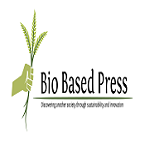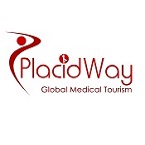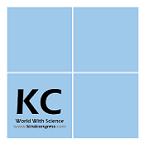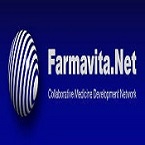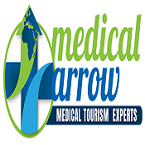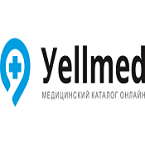About Conference
About Conference
Conference Series LLC LTD proudly presents 9th World Congress on Parkinson’s & Huntington’s disease. We invite all participants around the world to attend Parkinson's Congress 2023 held during July 17-18, 2023 in Zurich, Switzerland.
Parkinson's Congress deals with Neurological Syndromes caused due to leakage of electric impulse in neurons which leads to loss of communication. This kind of medical conditions are getting frequent in humans at present situations. It has been observed there are number of diseases associated with Neurological disorders for examples Parkinson’s diseases, Huntington’s, Alzheimer’s disease, brain tumours, Multiple Sclerosis, Spinal Muscular Atrophy, Brain Stroke, Epilepsy, Amyotrophic Lateral Sclerosis.
According to current survey Neurological disorders occupy first place in Europe Brain disorders are like Brain Tumour, Cerebral palsy, chiari malformation, Craniofacial abnormalities, Craniosynostosis, Developmental disorders, Encephalopathy, Epilepsy are recognized by World Health Organization in Europe. It is been identified 1.2 million people in Europe are suffering with Parkinson’s approximately 260000 people in Germany, 200000 people in Italy, 150000 people in Spain, 120000 people in UK, 117000 people in France are suffering from Parkinson's disease.
World Health Organization (WHO) and World Federation of Neurology (WFN) were collaborated after find the rate of Neurological disorders worldwide. An international Survey of Country Resources for Neurological disorders effects 109 countries and covering over 90% of the world’s population. This survey helps to collect valuable information regarding aspects of neurological care all around the world.
At National Institute of Health funding package is of $34 billion for the economic year 2017 to improve life of patients who are suffering from Parkinson’s disease and to raise the awareness on Neurological disorders around the World. PRP (Parkinson's Research Program) fund received amount of $16 million annually to research in neuromuscular disorders such as Alzheimer’s, Parkinson’s disease and Huntington’s disease.
Parkinson’s Congress 2023 is intended to honor prestigious award for talented Young researchers, Scientists, Young Investigators, Post-Graduate students, Post-doctoral fellows, Trainees, Junior faculty in recognition of their outstanding contribution towards the conference theme. The Young Scientist Awards make every effort in providing a strong professional development opportunity for early career academicians by meeting experts to exchange and share their experiences on all aspects of Neurology.
Young Research’s Awards at Parkinson’s Congress 2023 for the Nomination:
Young Researcher Forum - Outstanding Masters/Ph.D./Post Doctorate thesis work Presentation and only 25 presentations acceptable at the Neurology Congress 2023.
YRF Registration benefits:
-
Young Scientist Award recongination certificate and memento to the winners
-
Parkinson’s Congress 2023 provides best Platform for your research through oral presentations.
-
Learn about career improvement with all the latest technologies by networking.
-
Provide an opportunity for research interaction and established senior investigators across the globe in the field of Neurology.
-
It’s a great privilege for young researchers to learn about the research areas for expanding their research knowledge.
9th World Congress on Parkinson’s & Huntington’s Disease provides best plat form for Neurologists, Neurosurgeons, Scientists, Clinical Industry Specialists, Neurology Experts, Young Researchers with an aim to make patients feel better with innovative research outcomes.
Target audience:
Neuro physicians, Neuro surgeons, Neurologists, Psychiatrist, Physiotherapists, Neuro Specialists, Researchers, Professors, Industrials Experts, Nutritional Scientists, Lecturers and Students from Academic study in Parkinson’s and Huntington’s diseases , Pharma researchers on Neurology and Neuroscience, Therapists and Diagnostic Experts.
Sessions / Tracks
Session on: Parkinson Disease
Parkinson’s disease (PD) is a chronic and progressive disease of nervous system that possess symptoms which continue and become worse over time. It is the second commonest neurodegenerative disease after Alzheimer's disease, and in the UK, has a lifetime prevalence of between 0.1 and 0.3% of the population. The basic reason behind this condition is malfunction and death of vital nerve cells in brain. In normal conditions nerve cells present in the brain produces a neurotransmitter called dopamine that is responsible for signalling movement, emotions and co-ordination but in the case of diseased individual dopamine production slows down, hence the individual become unable to control the movement normally. There is no cure but treatment involves medication and surgery. Slowness of voluntary movements, reduced facial appearance, repetitious tongue, and diminished eye flashing, A shuffling gait with deprived arm swing and curved posture, Shaky stability; difficulty rising from a sitting position, Swallowing problems in later stages.
Associations:
National Parkinson’s Foundation, European Parkinson’s Disease Association, American Parkinson’s Disease Association, UK Parkinson’s Action Network, American Academy of Neurology, Movement Disorders Society, European Neurological Society, Parkinson’s Society Canada, Michael J. Fox Foundation, Parkinson’s Association of the Carolinas, Parkinson’s NSW, Parkinson's Unity Walk, Movement Disorder Society of Japan, Austrian Parkinson's Disease Society, International Parkinson’s and Movement Disorder Society, Danish Movement Disorder Society
Session on: Epidemiology of Parkinson’s
Parkinson's disease is a neurodegenerative disorder and the cause of it remained a mystery to the scientific community. Researchers say by exposing to harmful chemicals and Pesticides mutations occurs in the genes and results in neurological disorders. With age, the condition of disease increases exponentially and men are in higher proportion to prone compared to women. On an average 10million individuals are found to be suffering from Parkinson’s disease, from where only four present of people with Parkinson’s disease are diagnosed before the age of 50. An estimated of 40% to 60% of Parkinson disease patients suffering from depression. United States stands in the fourth position in considering the death of people due to Parkinson’s disease.
Associations:
National Parkinson’s Foundation, European Parkinson’s Disease Association, American Parkinson’s Disease Association, UK Parkinson’s Action Network, American Academy of Neurology, Movement Disorders Society, European Neurological Society, Parkinson’s Society Canada, Michael J. Fox Foundation, Parkinson’s Association of the Carolinas, Parkinson’s NSW, Parkinson's Unity Walk, Movement Disorder Society of Japan, Austrian Parkinson's Disease Society, International Parkinson’s and Movement Disorder Society, Danish Movement Disorder Society
Session on: Neuromuscular Disorders
Neurons are the specialized cells that are responsible for communication, when they cannot produce signals communication between nervous system breaks and results in neuromuscular disorders. Most of these disorders are thought be inheritable and treatment is given to improve the life of patient and no cure is available to completely eradicate the condition.
Associations:
National Parkinson’s Foundation, European Parkinson’s Disease Association, American Parkinson’s Disease Association, UK Parkinson’s Action Network, American Academy of Neurology, Movement Disorders Society, European Neurological Society, Parkinson’s Society Canada, Michael J. Fox Foundation, Parkinson’s Association of the Carolinas, Parkinson’s NSW, Parkinson's Unity Walk, Movement Disorder Society of Japan, Austrian Parkinson's Disease Society, International Parkinson’s and Movement Disorder Society, Danish Movement Disorder Society
Session on: Huntington’s disease
Huntington’s disease is inherited from Parents and often symptoms will be more like Parkinson’s disease which include problem with mood, mental abilities, Swallowing, Speaking, Sleep Disturbances followed by loss of co-ordination and unsteady gait. A gene called HTT (Huntingtin) which is responsible for coding protein Huntingtin, if any mutation to that gene it will cause disturbances in the brain and results in death of brain cell and leads to Huntington’s disease. Abnormalities with the mutant huntingtin include Cardiac Failure, Weight Loss, Osteoporosis, reduced glucose level. This condition is normally observed in the individuals under the age of fifties.
Associations:
National Parkinson’s Foundation, European Parkinson’s Disease Association, American Parkinson’s Disease Association, UK Parkinson’s Action Network, American Academy of Neurology, Movement Disorders Society, European Neurological Society, Parkinson’s Society Canada, Michael J. Fox Foundation, Parkinson’s Association of the Carolinas, Parkinson’s NSW, Parkinson's Unity Walk, Movement Disorder Society of Japan, Austrian Parkinson's Disease Society, International Parkinson’s and Movement Disorder Society, Danish Movement Disorder Society
Session on: Risk Factors of Parkinson’s disease
Symptoms and progression of disease will not be similar among the suffering individuals but people with Parkinson’s are at higher rate of developing related risks. Developing these conditions is not a certainty, only a possibility. Knowing the conditions can help a person with Parkinson’s disease or associated symptoms and helps to take preventative measures for a better life. Parkinson’s disease has a chance of creating mental ailment which can be mild or serious. It includes cognition (early stage symptoms), mood, and behaviour which are considered as major impairment when compared to normal population. The common mood alterations seen in the patients are despair, eagerness, indifference.
Associations:
National Parkinson’s Foundation, European Parkinson’s Disease Association, American Parkinson’s Disease Association, UK Parkinson’s Action Network, American Academy of Neurology, Movement Disorders Society, European Neurological Society, Parkinson’s Society Canada, Michael J. Fox Foundation, Parkinson’s Association of the Carolinas, Parkinson’s NSW, Parkinson's Unity Walk, Movement Disorder Society of Japan, Austrian Parkinson's Disease Society, International Parkinson’s and Movement Disorder Society, Danish Movement Disorder Society
Session on: Pathophysiology and Pharmacology
Parkinson’s disease is originated because of the gradual loss of cells in the substantia nigra of the brain. Dopamine is a neurotransmitter that transmits signals between two regions of the brain to coordinate activities like movement of limbs. If there is deficiency in dopamine production results in loss of co-ordination and end up with symptoms of Parkinson’s disease. As the disease progresses, nervous system and brain degenerates causing a higher movement disorder.
Associations:
National Parkinson’s Foundation, European Parkinson’s Disease Association, American Parkinson’s Disease Association, UK Parkinson’s Action Network, American Academy of Neurology, Movement Disorders Society, European Neurological Society, Parkinson’s Society Canada, Michael J. Fox Foundation, Parkinson’s Association of the Carolinas, Parkinson’s NSW, Parkinson's Unity Walk, Movement Disorder Society of Japan, Austrian Parkinson's Disease Society, International Parkinson’s and Movement Disorder Society, Danish Movement Disorder Society
Session on: Diagnosis for Parkinson’s disease
Early stage identification of Parkinson’s disease is difficult but includes some imaging studies. MRI (magnetic resonance imaging) and CT (computer tomogram) are used by many physicians to find out other relating Parkinson’s diseases such as encephalitis, Tumours, Hydrocephalus. Level of dopamine release and activity of brain can easily detect using PET and SPECT examining.
Associations:
National Parkinson’s Foundation, European Parkinson’s Disease Association, American Parkinson’s Disease Association, UK Parkinson’s Action Network, American Academy of Neurology, Movement Disorders Society, European Neurological Society, Parkinson’s Society Canada, Michael J. Fox Foundation, Parkinson’s Association of the Carolinas, Parkinson’s NSW, Parkinson's Unity Walk, Movement Disorder Society of Japan, Austrian Parkinson's Disease Society, International Parkinson’s and Movement Disorder Society, Danish Movement Disorder Society
Session on: Parkinson’s disease: Complications
Parkinson's disease is usually accompanied by additional problems, which may be cured and they are thinking difficulties, swallowing problems, depression and emotional changes, sleep difficulties, constipation, blood pressure changes, fatigue, pain.
Associations:
National Parkinson’s Foundation, European Parkinson’s Disease Association, American Parkinson’s Disease Association, UK Parkinson’s Action Network, American Academy of Neurology, Movement Disorders Society, European Neurological Society, Parkinson’s Society Canada, Michael J. Fox Foundation, Parkinson’s Association of the Carolinas, Parkinson’s NSW, Parkinson's Unity Walk, Movement Disorder Society of Japan, Austrian Parkinson's Disease Society, International Parkinson’s and Movement Disorder Society, Danish Movement Disorder Society
Session on: Mitochondrial Dysfunction
The known cause of Parkinson’s disease is reduced level of dopamine production by neurons in the brain but surprisingly the main cause was malfunctioning of cell organelles like mitochondria leads to increased oxidative stress which in turn results in cell death and finally ends with Parkinson’s disease with motor and non-motor symptoms. The reason may be both genetic and environment factors.
Associations:
National Parkinson’s Foundation, European Parkinson’s Disease Association, American Parkinson’s Disease Association, UK Parkinson’s Action Network, American Academy of Neurology, Movement Disorders Society, European Neurological Society, Parkinson’s Society Canada, Michael J. Fox Foundation, Parkinson’s Association of the Carolinas, Parkinson’s NSW, Parkinson's Unity Walk, Movement Disorder Society of Japan, Austrian Parkinson's Disease Society, International Parkinson’s and Movement Disorder Society, Danish Movement Disorder Society
Session on: Insights and therapeutics: Parkinson’s disease
No cure has been identified to Parkinson’s disease, but use of drugs can slow down the progression. Normally prescribed by physicians include change of life style, regular aerobic exercise and prescribed therapeutic supplement. It is noted that people will have beneficial effect who are taking co-enzyme Q10 during their initial stage of disease. It is unclear how genetically changes cause Parkinson disease or influence the risk of developing the disorder. Some gene mutations (alterations) such as LRRK 2, PARK 7, PINK 1, PRKN disturb the cell mechanism that breaks down undesired proteins in neurons which are responsible for dopamine production. Hence, under graded proteins accumulate, resulting in death of vital nerve cells and subsequently lowers the level of dopamine production. In most cases of Parkinson disease, protein deposits called Lewy bodies. It is unclear whether Lewy bodies play a key role in killing nerve cells or just part of the cells which are responsible to the disease. Yoga, massage, acupuncture, meditation, music or art therapy, alexander technique is also regarding as best methods to control neurological disorders particularly Parkinson’s disease, Alzheimer’s and neuropsychiatric. Tetrabenazine, neuroleptics, mirtazapine can be taken to for treating chorea.
Associations:
National Parkinson’s Foundation, European Parkinson’s Disease Association, American Parkinson’s Disease Association, UK Parkinson’s Action Network, American Academy of Neurology, Movement Disorders Society, European Neurological Society, Parkinson’s Society Canada, Michael J. Fox Foundation, Parkinson’s Association of the Carolinas, Parkinson’s NSW, Parkinson's Unity Walk, Movement Disorder Society of Japan, Austrian Parkinson's Disease Society, International Parkinson’s and Movement Disorder Society, Danish Movement Disorder Society
Session on: Neurosurgery
Presently Deep brain stimulation is widely recommended for improving people suffering with Parkinson’s disease one is deep brain stimulation (DBS) and is performed by inserting a tube in the small intestine and is used to treat a variety of deactivating neurological symptoms most commonly the draining symptoms of Parkinson’s disease (PD), such as tremor, rigidity, stiffness, slowed movement, and walking problems. There will be no effect with using DBS to healthy brain tissue by terminating nerve cells. Instead the procedure blocks electrical signals from targeted areas in the brain.
Associations:
National Parkinson’s Foundation, European Parkinson’s Disease Association, American Parkinson’s Disease Association, UK Parkinson’s Action Network, American Academy of Neurology, Movement Disorders Society, European Neurological Society, Parkinson’s Society Canada, Michael J. Fox Foundation, Parkinson’s Association of the Carolinas, Parkinson’s NSW, Parkinson's Unity Walk, Movement Disorder Society of Japan, Austrian Parkinson's Disease Society, International Parkinson’s and Movement Disorder Society, Danish Movement Disorder Society
Session on: Free Radicles and Aging in Parkinson’s
Free radicles have both beneficial and baleful effect to human body. These are produced with in the body by metabolism and enters body through external sources such as pollution, radiation, therapeutics etc; Oxidative stress is known to cause many neurological diseases such as Alzheimer’s, Parkinson’s disease, Amyotrophic lateral sclerosis(ALS). With oldness, there is a typical failure of the dopamine producing neurons. Out of surprise 2% of the 1 million people with the disease are thought to be below the age of fifty. In some of the rare situations symptoms are seen in children and teens and it is known as juvenile Parkinsonism.
Associations:
National Parkinson’s Foundation, European Parkinson’s Disease Association, American Parkinson’s Disease Association, UK Parkinson’s Action Network, American Academy of Neurology, Movement Disorders Society, European Neurological Society, Parkinson’s Society Canada, Michael J. Fox Foundation, Parkinson’s Association of the Carolinas, Parkinson’s NSW, Parkinson's Unity Walk, Movement Disorder Society of Japan, Austrian Parkinson's Disease Society, International Parkinson’s and Movement Disorder Society, Danish Movement Disorder Society
Session on: Novel Therapeutics
The commonly used drug to treat Parkinson’s disease is Levodopa which has higher frequency to develop motor Fluctuations and results in L-dopa-induced dyskinesia (LID). Since the Characteristic key cause of Parkinson’s disease is reduced production level dopamine by neurons, research studies developed a molecule called LXR (Liver X Receptor) where it has got potential to reduce the loss of dopaminergic neurons. Researchers propose novel ideas to treat Parkinson’s disease to reduce the risk of causing side effects, frequency of dyskinesia, to treat cognitive disorders such as anxiety and depression.
Associations:
National Parkinson’s Foundation, European Parkinson’s Disease Association, American Parkinson’s Disease Association, UK Parkinson’s Action Network, American Academy of Neurology, Movement Disorders Society, European Neurological Society, Parkinson’s Society Canada, Michael J. Fox Foundation, Parkinson’s Association of the Carolinas, Parkinson’s NSW, Parkinson's Unity Walk, Movement Disorder Society of Japan, Austrian Parkinson's Disease Society, International Parkinson’s and Movement Disorder Society, Danish Movement Disorder Society
Session on: Clinical Trials in Parkinson’s diseases
To develop a promising drug or treatment for Parkinson’s disease observational study is being conducted by scientist in laboratory to provide patients with better life. Clinical trials are performed to slowdown the progression and reduce the symptoms.
Associations:
National Parkinson’s Foundation, European Parkinson’s Disease Association, American Parkinson’s Disease Association, UK Parkinson’s Action Network, American Academy of Neurology, Movement Disorders Society, European Neurological Society, Parkinson’s Society Canada, Michael J. Fox Foundation, Parkinson’s Association of the Carolinas, Parkinson’s NSW, Parkinson's Unity Walk, Movement Disorder Society of Japan, Austrian Parkinson's Disease Society, International Parkinson’s and Movement Disorder Society, Danish Movement Disorder Society
Market Analysis
On behalf of our Organizing committee members we welcome attendees like Speakers, Exhibitors, delegates, Poster presenters, Students, Young researchers from across the world to unleash the innovative ideas in the field of neuroscience and brain disorders at Parkinson’s congress 2023 held during July 17-18,2023 in Zurich,Switzerland.
This Parkinson's International conference of Europe focus on innovative ideas of Parkinson’s and Huntington’s diseases treatment and research
Reasons to undertake:
Parkinson's congress receive great response and support from worldwide NeuroResearchers. As previous Parkinson's conferences we aspire to make Parkinson's congress 2023 a grand success with the support of highly eminent speakers from Neuroscience and Parkinson’s disease communities. We promise our speakers world class hotel facilities and hospitality along with updated research knowledge on Parkinson’s and other neurological disorders.
According to World Health Organization (WHO) and World Federation of Neurology survey 6.3 million people are suffering with Parkinson's disease. The age is usually over 60 but it is estimated that one in tem are diagnosed before the age of 50 and it can affect people in their 40’s and younger Especially in Europe Parkinson’s disease is diagnosed 1 per 1000 people making it second most common neurodegenerative disorder.
As per the Neurological research till date with was clear that dopamine a neurotransmitter in brain gradually fall its level. Which leads to Parkinson’s disease it was observed that dopamine – generating cells known as dopaminergic neurons in the substantia nigra part of brain have died. Research say a male has 50% higher risk of developing Parkinson’s disease than a female, This progressive nervous system disorder affects the persons movement like speak, write and other voluntary movements different treatments for Parkinson’s disease were used but still death rate of Parkinson’s disease was gradually increasing. Approximately one million adults in USA are living with Parkinson’s disease and 60000 are diagnosed yearly and In United Kingdom 127000 people have Parkinson’s disease.
Focused concepts in congress:
Parkinson’s disease
Neuroscience
Neuromuscular Disorders
Environment and genetic changes involvement in neurotransmitters
Effect of free radicles and aging in patients
Diagnosis and imaging of Parkinson’s disease
Pathophysiology and neuropsychiatry
Neurogenic Orthostatic Hypotension
Parkinson’s disease condition.
Medication and surgery for Parkinson’s disease
Major Associations around the globe:
National Parkinson Foundation
American Parkinson Disease Association (APDA)
Parkinson’s disease Foundation
Movement Disorder Society of Australia
Parkinson's Unity Walk
Movement Disorder Society of Japan
Moroccan Neurological Society Movement Disorders Group
Italian Society for the Study of Parkinson Disease, Extrapyramidal Diseases and Dementia
Ecuador Movement Disorders Group
Austrian Parkinson's disease Society
Danish Movement Disorder Society
International Parkinson and Movement Disorder Society
Parkinson’s disease and Movement Disorders Society of India
Top universities globally working in the field of Parkinson Disease
University of Bath
The University of Queensland
University of Bristol
University of Cambridge
The Imperial College of Science and Medicine
Duke University
University of Milan
Karolinska Institute
University of Hamburg
The University of Edinburgh
University of Munich
University of Rochester
University of Zurich
Leiden University
University of Bristol
University of Helsinki
University of Freiburg
University of Frankfurt.
Past Conference report
8th World Congress on Parkinsons & Huntington Disease was organized during September 12-13, 2022 Webinar. The conference was marked with the attendance of Editorial Board Members of supporting journals, Scientists, young and brilliant researchers, business delegates and talented student communities, who made this conference fruitful and productive.
This conference included the following scientific tracks:
-
Parkinson Disease
-
Epidemiology of Parkinson’s
-
Neuromuscular Disorders
-
Huntington’s disease
-
Risk Factors of Parkinson’s disease
-
Pathophysiology and Pharmacology
-
Diagnosis for Parkinson’s disease
-
Parkinson’s disease: Complications
-
Mitochondrial Dysfunction
-
Insights and therapeutics: Parkinson’s disease
-
Neurosurgery
-
Free Radicles and Aging in Parkinson’s
-
Novel Therapeutics
-
Clinical Trials in Parkinson’s diseases
Conference Series LLC Ltd has taken the privilege of felicitating Parkinsons Congress 2022 Organizing Committee, Editorial Board Members and Keynote Speakers who supported for the success of this conference.
The esteemed guests, keynote speakers and researchers shared their innovative research and vast experience through their informative presentations at the podium of Your response is our motivation; remembering this maxim and being seen the victory of Parkinsons Congress 2022, conference series LLC LTD is glad to announce the next meeting. Mark your calendars for the upcoming conference, 9th World Congress on Parkinsons & Huntington Disease ( Parkinsons Congress 2023) which is scheduled during July 17-18, 2023 Zurich, Switzerland
Meet us again @ Parkinsons Congress 2023


